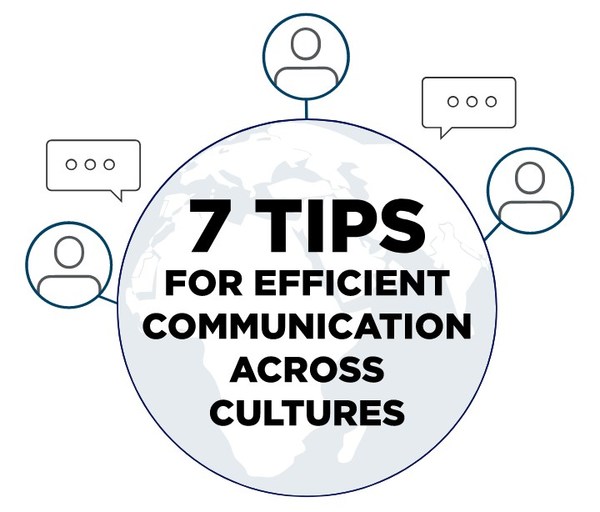News, company info and media resources
pr@toastmasters.org | +1 720-439-5050
News Releases
ENGLEWOOD, Colo., July 23, 2020 /PRNewswire/ -- As platforms like Facebook, Twitter, and Zoom enable us to connect and interact with people across the globe in a matter of seconds, we are better able to see how other cultures communicate. Whether it's a more direct or indirect style of communication, if we aren't accustomed to certain behaviors, we might be caught off guard initially.
Toastmasters International, the global organization devoted to communication and leadership skills development, has been offering its members a safe place to practice their communication skills for the past 95 years. Cultural coach, trainer, and mentor for multinational organizations, Christian Höferle offers the following seven tips for efficient communication across cultures:
- Have self-awareness. Recognize your own communicative preferences. Before you can learn to adjust the way you get your message across with people from other cultures, you'll want to know what the baseline is from which you are adjusting.
- Respect other people's model of the world. Different cultural regions have different ways of expressing their thoughts and feelings; they process information based on their system of values, philosophies, norms, and traditions. What you consider as "normal" may not be "normal" for others.
- Listen to relate, not to respond. Communication across cultures requires that we listen with our whole bodies: Truly listen, not only to the words themselves. Listen to the tonality, pitch, volume of the speaker, observe their body language and facial features, get a feeling for the mood of the environment, pay attention to what is not being said. The result of relational listening is rapport.
- There is no failure, only feedback. There won't always be rapport right away. Be OK with the fact that you will make mistakes. Stepping on people's toes is inevitable. How you recover from your cross-cultural faux pas is what matters. Every gaffe can be instructive. Every miscommunication is an indicator that you haven't built enough rapport yet.
- Pace yourself. Whether English (or any other common language, for that matter) is your native tongue or a foreign language, slow down! Enunciate each word, every syllable if necessary. Everyone speaks and understands languages at different levels. Also try to avoid jargon. Idiomatic language is culture-specific and will lead to confusion.
- Watch for (in)directness. Some cultures communicate quite directly (e.g., Netherlands, Germany, Israel, Russia), others prefer a very indirect style (e.g., Korea, Japan, Thailand, Indonesia). Direct talkers phrase messages in an explicit way, often spelling out every detail. Indirect communicators imply parts of their message without verbalizing them. They leave space to "read between the lines" and it takes an experienced listener to pick up what is being omitted.
- Ask quality questions. Use open-ended questions, the type that don't prompt a yes/no answer. Ask one thing at a time ("What did you like about the presentation?"). Avoid negative questions ("Don't you have a comment?"). The person with the highest quality questions facilitates the most efficient conversation.
For more information about communicating across cultures, read the Toastmaster magazine article "Evaluations: Bridging the Culture Gap" featuring Höferle and other culture experts.
Höferle will be part of an upcoming Toastmasters webinar series: Communicating Across Cultures. The webinars will cover increasing cultural awareness, discovering nuances in humor and body language, and how to gain global business intelligence skills. Click here to register for one or all of the free webinars, which will take place on July 29, 30, and 31.
To find a local Toastmasters club where you can practice and develop your communication skills, go to www.toastmasters.org/findaclub.
About Toastmasters International
Toastmasters International is a worldwide nonprofit educational organization that empowers individuals to become more effective communicators and leaders. Headquartered in Englewood, Colo., the organization's membership exceeds 358,000 in more than 16,800 clubs in 143 countries. Since 1924, Toastmasters International has helped people from diverse backgrounds become more confident speakers, communicators and leaders. For information about local Toastmasters clubs, please visit www.toastmasters.org. Follow @Toastmasters on Twitter.
SOURCE Toastmasters International

+1 720-439-5050
pr@toastmasters.org


